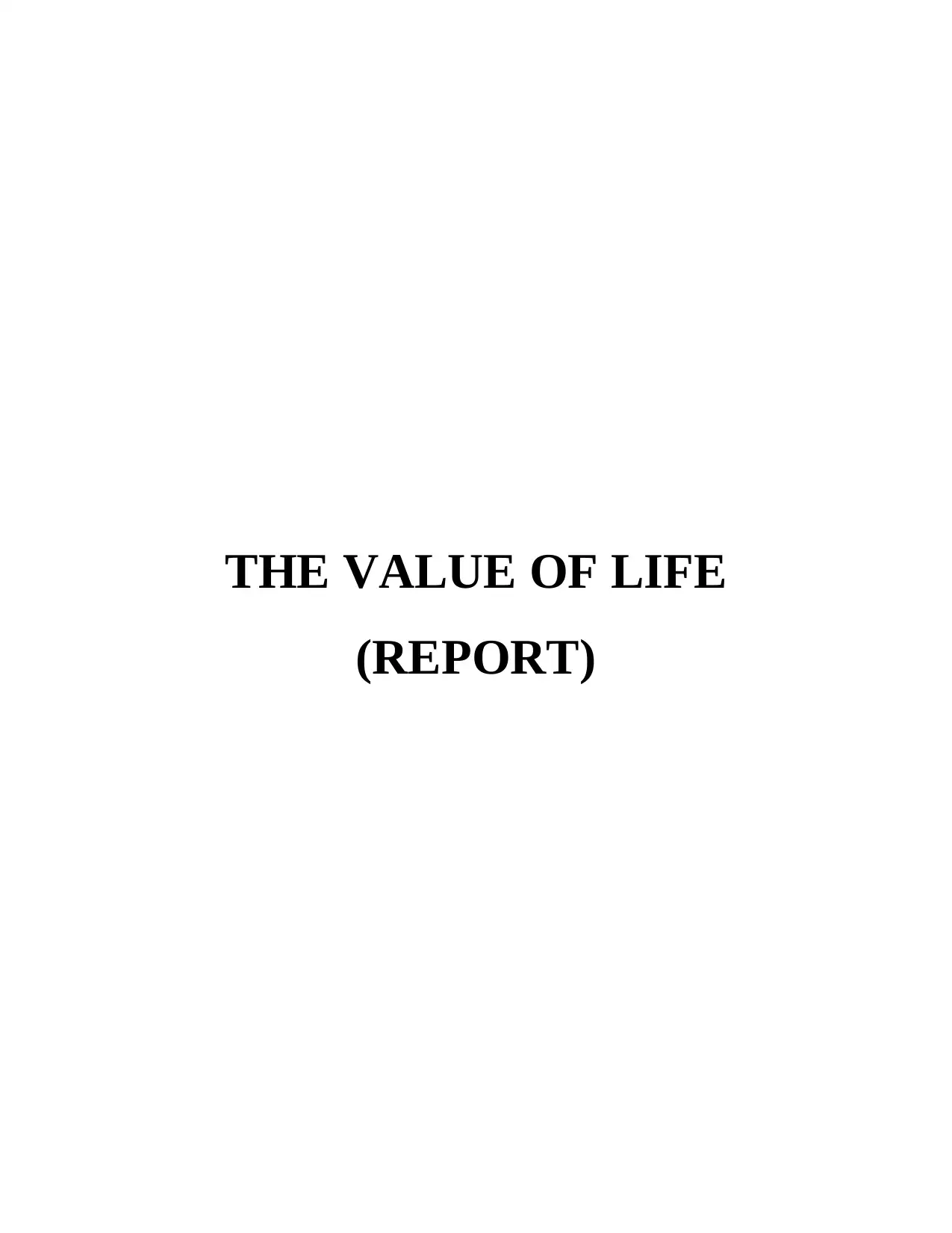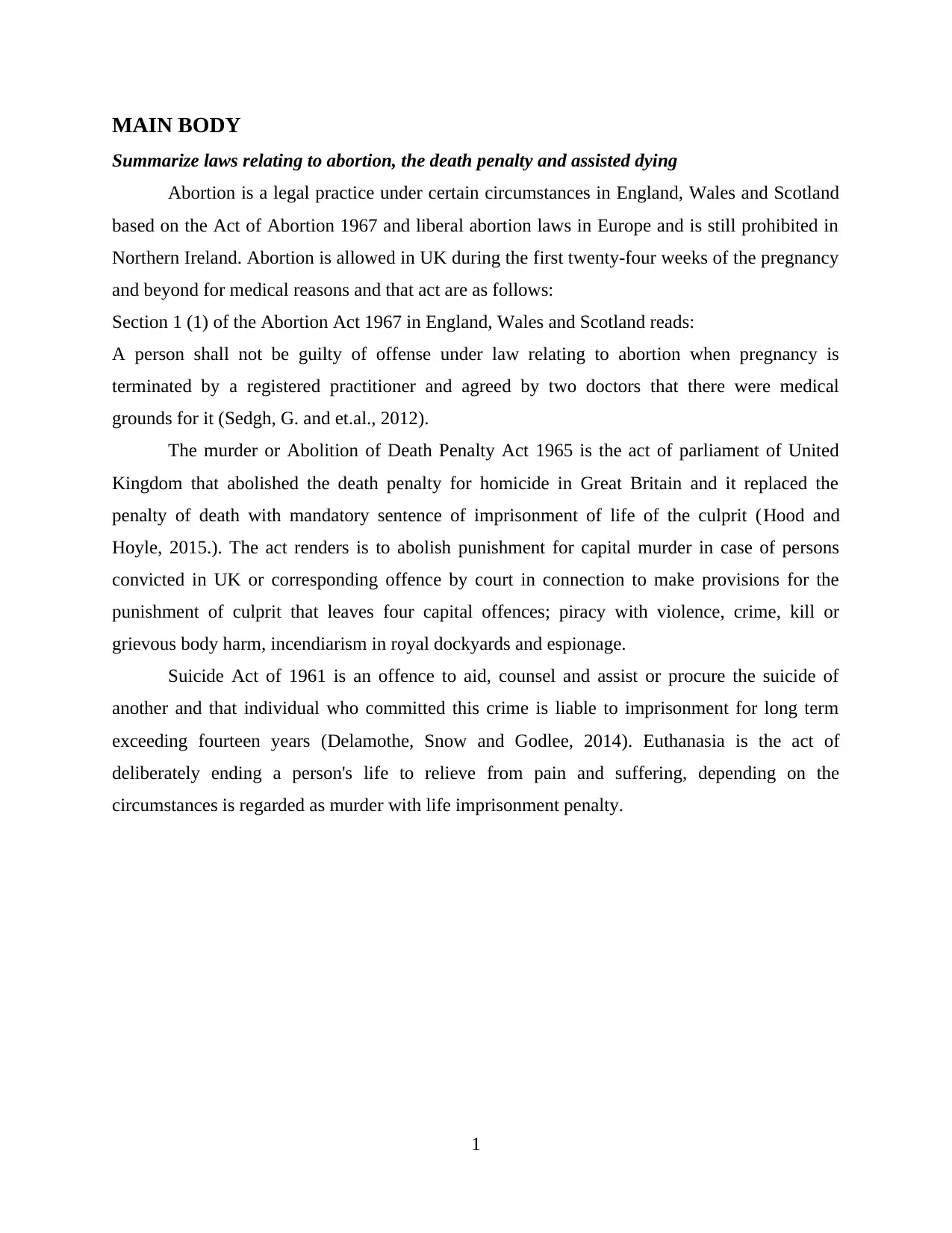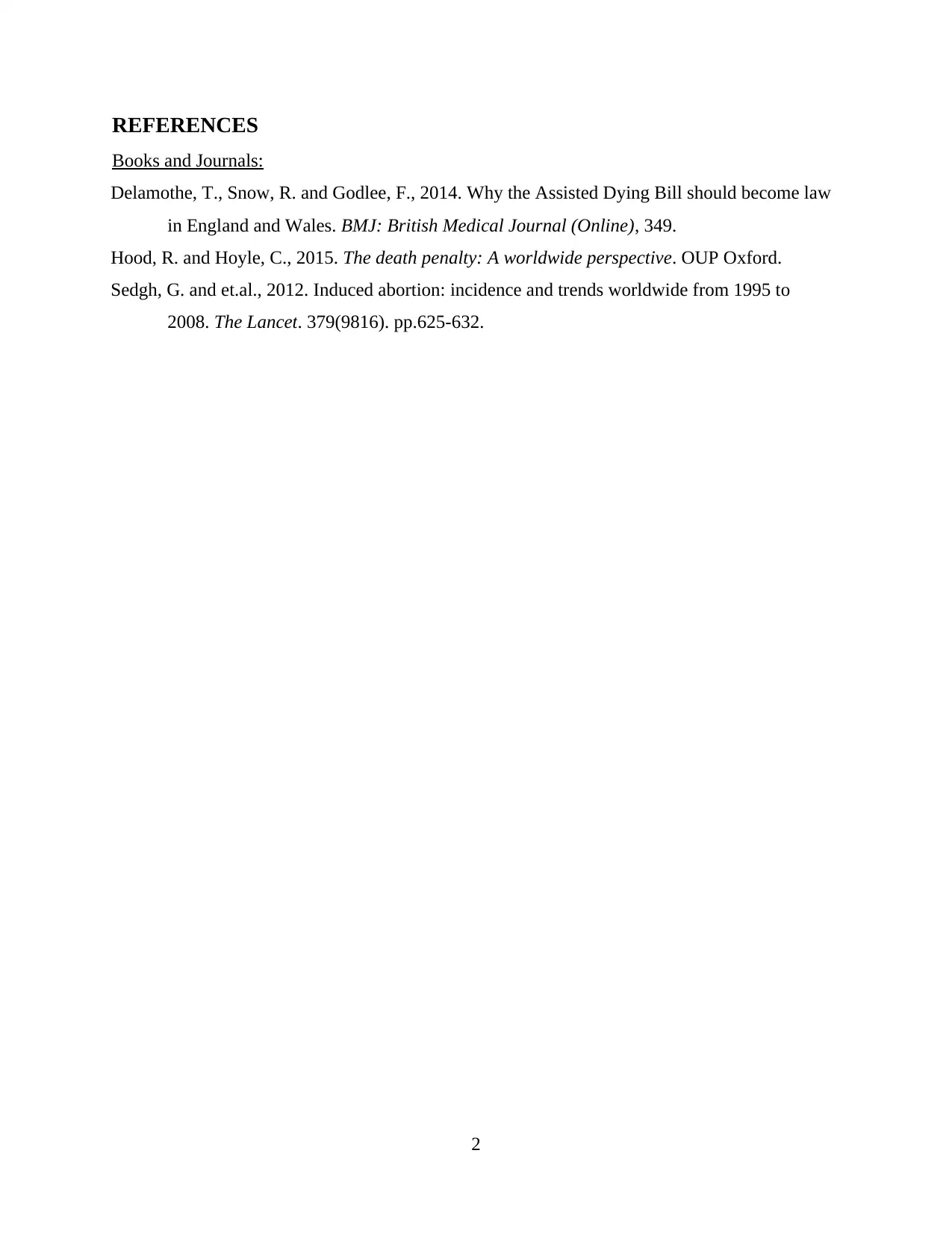Laws Concerning Abortion, Death Penalty, and Assisted Dying: Report
VerifiedAdded on 2021/01/03
|4
|430
|92
Report
AI Summary
This report examines the legal landscape surrounding abortion, the death penalty, and assisted dying in the United Kingdom. It begins by outlining the provisions of the Abortion Act 1967, which permits abortion under specific circumstances, and highlights the legal framework established by the Abolition of Death Penalty Act 1965, which abolished capital punishment. Furthermore, it addresses the implications of the Suicide Act 1961, which criminalizes assisting suicide, and touches upon the legal status of euthanasia. The report references relevant academic sources, including journal articles and books, to support its analysis of these complex and often contentious legal issues. The report provides a succinct overview of the current legal positions, offering insights into the regulations and ethical considerations associated with each topic.
1 out of 4










![[object Object]](/_next/static/media/star-bottom.7253800d.svg)